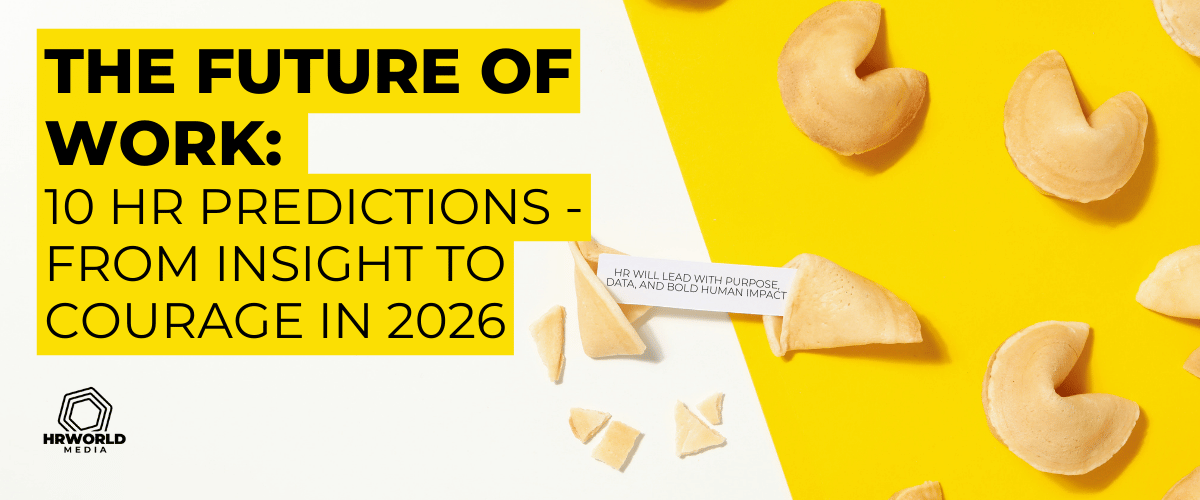Catching up with my good friend Shane Cragun reminded me how quickly – and how far – the world of work is changing. We met years ago in Nice when AI was mostly theoretical, and HR’s biggest digital concern was whether remote work could be scaled. Now, we’re not just adapting to technological advances – we’re going through a major overhaul of how organizations operate. And honestly, it’s both exciting and scary.
AI isn’t just another wave of innovation; it’s a tsunami that’s engulfing every layer of organizational structure. As Shane and I discussed, this isn’t the same as the industrial revolutions of the past. Yes, every generation has had its ATM-versus-teller moment, where we feared job losses and were later surprised by job creation. But AI is different. It’s not just replacing tasks; it’s learning from itself, improving autonomously, and scaling at a speed that exceeds human capability.
What’s most striking in our recent exchange is how unprepared many organizations are for these developments. While many HR leaders are still experimenting with ChatGPT or running pilot projects, the true progress is already well underway – autonomous AI agents managing supply chains, embodied AI functioning like digital ants at Amazon, and digital twins being trained to attend meetings on our behalf. In the startup world, founders are already working in “Ironman suits” – AI-powered enhancements that enable two-person teams to create billion-dollar companies. This is not theoretical; it’s happening now.
This raises an urgent question I believe HR needs to address: Are we as a profession prepared to redefine what it means to be an organization in the age of AI?
Shane, now based in Malaysia and deeply engaged in leadership development across Asia, is working with central banks, global corporations, and even the Saudi Esports Federation. Their challenge? Becoming AI-ready not just in infrastructure but also in mindset, culture, and leadership. That’s the real transformation ahead. It’s not only about tech implementation – it’s about rethinking organizational design, decision-making, team dynamics, and job structures.
What stayed with me most from our talk is his framework of “human-centered, AI-augmented” versus “AI-centered, human-augmented.” It’s a simple yet powerful distinction. The risk we face is letting AI dictate how we work, who we hire, and how we lead – without a moral or human compass. The opportunity is in building organizations where AI becomes a tool to elevate people, not replace them.
In my own company, we’ve fully embraced remote work. We abandoned the office not because of cost, but because we realized trust is more important than physical presence. I’ve always believed in a results-only work environment, and AI only reinforces that philosophy. When people are empowered, aligned, and trusted, they will deliver – regardless of location or hours worked.
But now, the tools we have can support that in remarkable ways – automated follow-ups, enriched conversations, AI summaries of every interaction. I’m developing my own product to help trade show exhibitors do exactly that. Still, there’s a societal undercurrent here we can’t ignore. As Shane pointed out, this may be the first time in history where new tech actively shrinks the workforce instead of expanding it. Ivy League grads are already struggling to find entry-level roles. CEOs are told they can’t hire unless they prove AI can’t do the job. Middle managers – the glue in most organizations – are overwhelmed and under-supported. Shane is now writing a book, with Harvard’s top case writer, about the burnout crisis facing this “squeezed middle.” And he’s right – this is our litmus test.
The question now isn’t whether AI will transform work – it’s already happening. The key issue is: who will lead this transformation with genuine compassion? Who will make sure we’re building organizations that are not just faster, but better? Who will redefine leadership, management, and growth in a world where intelligence is no longer limited to humans? HR leaders have a crucial role in this shift – only if we decide to embrace the change rather than wait on the sidelines. This requires a mindset shift: more foresight, more courage, and above all, more humanity, not just resilience.
We don’t have all the answers – nobody does, hence the conversation continues at the HR World Summit in Porto.
— Mihaly Nagy


